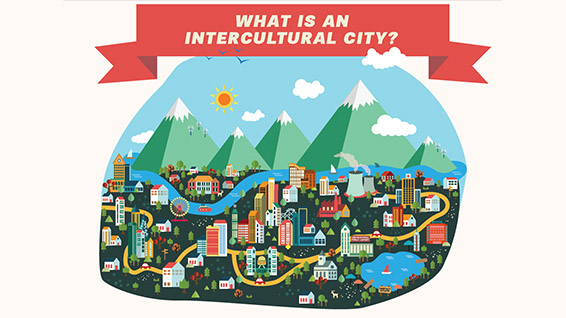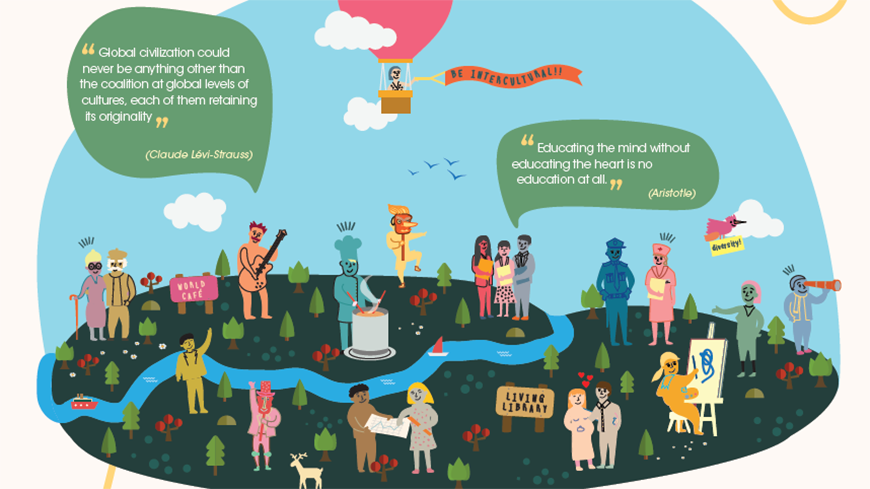What is an intercultural city?

The cities participating in the ICC programme review their governance, policies, discourse and practices from an intercultural point of view.
As a result of intercultural policies, most citizens regard diversity as a resource rather than a problem and accept that all cultures change as they encounter each other in the public arena.
City officials publicly advocate respect for diversity and a pluralistic city identity. The city actively combats prejudice and discrimination and ensures equal opportunities for all by adapting its governance structures, institutions and services to the needs of a diverse population, without compromising the principles of human rights, democracy and the rule of law.
In partnership with business, civil society and public service professionals, the intercultural city develops a range of policies and actions to encourage more mixing and interaction between diverse groups.
The high level of trust and social cohesion help to prevent conflicts and violence, increase policy effectiveness and make the city attractive for people and investors alike.







